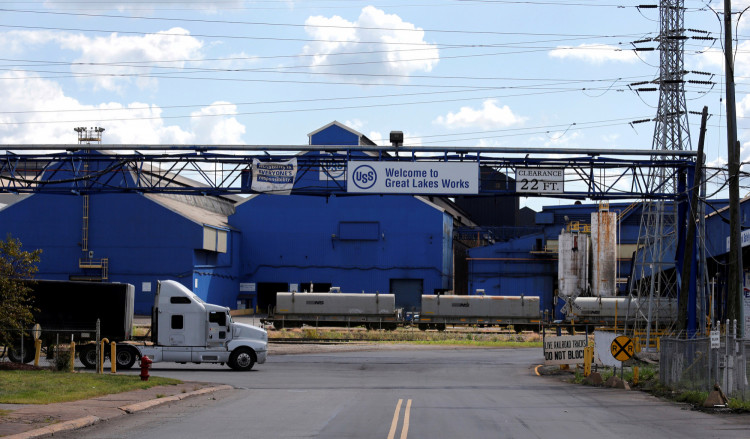While U.S. Steel, a symbol of the American Industrial Revolution, rejected a takeover bid from Cleveland-Cliffs last weekend, market experts are wary of the profound impact on the foundations of American manufacturing. There's a particular concern over increasing market concentration for steel used in cars, canned goods, and electric vehicle batteries.
Demand Surge Forecasted
Analysts predict that due to the evolution of transportation and energy infrastructure, as well as heightened expenditure in large manufacturing plants and the electric vehicle industry, U.S. steel demand is expected to rise in the coming years.
Currently, four major suppliers dominate the U.S. steel production landscape: U.S. Steel, Cleveland-Cliffs, Nucor Steel, and Steel Dynamics. Cleveland-Cliffs stands as the country's largest plate steel manufacturer, with U.S. Steel in the second position. Some downstream manufacturers pointed out that American steel is already among the most expensive globally. Further consolidation in the steel sector might allow producers to inflate prices even more, exacerbating pressures on the downstream industries.
A furniture company commented on the already-concentrated steel market in the U.S., noting difficulties in procuring more affordable foreign steel.
Lourenco Goncalves, CEO of Cleveland-Cliffs, suggested that the newly formed company would offer downstream manufacturers steel at lower costs, with heightened innovation.
Cleveland-Cliffs announced its intention on Sunday to acquire Pittsburgh-based U.S. Steel at $35 per share in a mix of cash and stock. However, U.S. Steel declined the offer, deeming it "unreasonable."
In a letter released on Sunday to Cleveland-Cliffs' CEO Lourenco Goncalves, David Burritt, CEO of U.S. Steel, stated that they couldn't determine if the acquisition proposal genuinely reflected the complete and fair value of their company. Consequently, their board had no choice but to decline what they deemed an unreasonable takeover offer.
Potential Market Dominance
Acquiring U.S. Steel would elevate Cleveland-Cliffs to North America's largest steel producer with an annual production of almost 26 million tons and a revenue nearing $40 billion. If both companies were to merge, Nucor Steel, currently the largest domestic steel manufacturer, would drop to the second spot with a production of 18 million tons.
Experts indicated that the merged entity would produce over 50% of the steel consumed in the U.S. annually.
The potential consolidation of Cleveland-Cliffs in the automotive steel market could become a focal point for downstream enterprises and antitrust regulators. Already the largest automotive steel plate supplier in the U.S., Cleveland-Cliffs supplies over 20% of U.S. Steel's annual revenue through the automotive industry.
Both U.S. Steel and Cleveland-Cliffs primarily use blast furnaces for steel production from melted iron ore. This method is pivotal for producing high-quality steel plates used in car fenders, hoods, and other external vehicle parts. If Cleveland-Cliffs were to acquire U.S. Steel, they would become the only U.S. steel company utilizing blast furnaces, and consequently, the sole domestic supplier of tin for canned goods.
Moreover, if a merger occurs, the new company would become the sole iron ore supplier in the U.S., holding a monopoly over the nation's iron ore supply.





